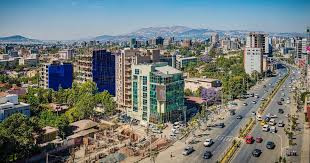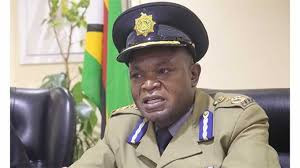
YESTERDAY, the continent celebrated Africa Day, 62 years after leaders met in Addis Ababa, Ethiopia, for the first summit of the Organisation of African Unity (OAU).
They had met five years earlier at the first meeting of African Heads of State and government, chaired by President Kwame Nkrumah in Ghana, where eight States were represented.
In Addis Ababa, five years later, 32 States were represented as they pushed for the decolonisation of Africa and charted a new course, one where they would be masters of their destinies.
The host, His Imperial Majesty Haile Selassie I, Emperor of Ethiopia, set the ball rolling, saying Africa was at mid-course, in transition from the Africa of yesterday to the Africa of tomorrow. He exhorted African leaders to avoid the pitfalls of tribalism. Divisions along tribal lines, Selassie said: “Open our doors to foreign intervention and its potentially harmful consequences”.
In his address, Nkrumah said, “Our people supported us in our fight for independence because they believed that African governments could cure the ills of the past in a way which could never be accomplished under colonial rule”. If, therefore, now that we are independent, we allow the same conditions to exist that existed in colonial days, all the resentment which overthrew colonialism will be mobilised against us, he warned.
The leaders at that meeting were resolute that they had the solutions to the ills besetting the continent.
Sixty years later, the ills of the past have refused to go. Conflicts have refused to go, some of them inflamed by tribalism.
The Democratic Republic of Congo (DRC), a vast central African country, has been beset with conflict, which threatens to destabilise Africa's Great Lakes Region.
- PAP presidency: Charumbira shoo-in
- Chief Charumbira seconded for Pap presidency
- Thirteen Ethiopian journalists arrested in over a week
- Africa Day: Reflections on the past and future freedoms
Keep Reading
It needed a non-African country, Qatar, to broker a ceasefire between the DRC and the M23 rebels, despite meetings by Sadc and a joint meeting of Sadc and the East African Community bloc. Where are African solutions to African problems?
Sudan has been in flames for the past two years, pitting the Sudanese Armed Forces and the paramilitary group, the Rapid Support Forces. Its neighbour, South Sudan, Africa's youngest country, has not known peace since a marriage of convenience between Salvar Kiir and Riek Machar.
Sixty-two years later, Africa has seen coups.
From Egypt, Zimbabwe, Mali, Guinea, Burkina Faso, Sudan, Niger to Gabon, unconstitutional removal of governments have taken place in the last decades.
What was supposed to be a new course for the continent has seen the emergence of dictators who prepared to tear the Constitution to remain in power.
While the focus has been on power retention, the youth bulge has not been attended to, with thousands perishing in the Mediterranean each year as they seek greener pastures in Europe.
What was supposed to be a demographic dividend has turned into a bomb with the youthful population engaged in social ills such as drug and substance abuse, robberies and being recruited in armed conflicts on the continent.
The founding fathers pushed for the free movement of people on the continent. This has remained a challenge with restrictions in place. It is easier for a European, Asian or American to travel on the continent. Tied to that, the continent needs to scale up connectivity. Europe, Dubai and Qatar have become the easiest gateways if one wants to travel from southern to northern Africa.
All hopes are not lost, however. The African Continental Free Trade Area (AfCFTA) has the potential to catapult Africa economically. AfCFTA will lift 100 million out of poverty by 2035, according to the World Bank.






